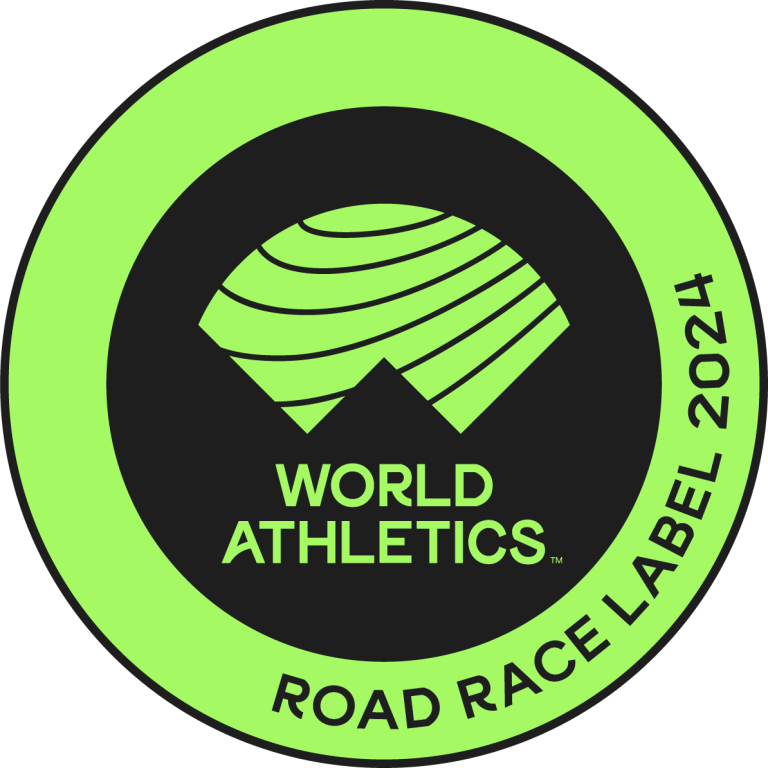MARATHON NUTRITION GUIDE
You have entered the final stretch of your preparation for the coveted marathon. You have put in a lot of time and effort. You’ve seen your physical condition improve week by week and you’re determined to give your best shot that day. Certainly, the last thing you expect is to have a bad race day because you’ve given up on yourself. If you don’t want to find yourself at the end of the race wondering what went wrong, that day put your will forward and chase the perfect supply, from the beginning until the end. At the same time, in the last 3 weeks your training program changes a lot and as a result some changes must also be made in your diet. Starting from the third week before the marathon, it is very important that the final changes in your weight and body composition have been made, through nutrition and training, At the same time you can test the effect of caffeine, new foods rich in carbohydrates and sports drinks during training to choose the ones that will help you to improve your performance. During the second week, your attention should focus on the adequate intake of antioxidant substances through the diet, to improve the natural defence. This can be accomplished by eating at least 8 portions of fruit and vegetables daily. At the same time, the intake of metals (zinc, iron, magnesium and copper) should be increased, as well as that of vitamins E and C, through the consumption of green leafy vegetables, citrus fruits, carrots, whole grains, seafood and meat. Consuming omega-3 fatty acids, either through a supplement or through eating oily fish is recommended to calm muscle pain and boost immunity. Finally, you should give great importance to efficient sleep, while this week you can experiment with the time before your workouts that is required to absorb the possible new foods. The last week when the training kilometers will decrease, the most important thing is to slightly reduce the portions of food, without missing meals and gradually increase the intake of carbohydrates. Reduce the portions of fat, so that you are sure that your weight will not increase shortly before the race. Clearly this is the week you should follow one of the carb loading protocols. According to the scientific research, this method has been shown to increase muscle glycogen stores above normal levels causing the well-known loading of carbohydrate stores. The day before the race, you should be in optimal hydration, drinking plenty of fluids and using enough salt in your food especially in the last 2 days to ensure the consumption of adequate electrolytes. At this point it is important to mention that in the last week you should avoid drinking alcohol because it causes dehydration.
How to plan your nutritional supply
After you have already studied the route of the race and found the pace you will follow, be sure to find out where the fuel stations will be and plan how you will use them efficiently. Then, base your fueling not only to help provide immediate energy, but also to minimize the risk of developing hyponatremia and dehydration.
Prevention of hyponatremia
Hyponatremia can occur if you drink too much fluid, causing dilution of sodium levels in your body, which increases as the duration of the race increases, especially in races of more than 4 hours. For this reason, it is preferable to choose salty foods and drinks in the Marathon race. As endurance athletes, consuming salty snacks and fluids will compensate for sodium loss in sweat and minimize the chances of hyponatremia. A very practical solution would be to prefer sports drinks containing 100mg – 110mg of sodium and 38mg of potassium per 250ml of product or salt tablets. And speaking of potassium…
Maintaining potassium at desired levels
There’s an important reason for the ideal combination of water and banana during the Marathon: Water hydrates and bananas provide potassium.
Potassium is a mineral that “works” with sodium to balance fluid and electrolyte levels in your body. Since steady fluid levels help regulate your heart rate and prevent muscle cramps, potassium is especially important for the runners.
You usually end up with more potassium outside the cells than inside them. This is why you feel weak, suffer from leg cramps and may feel bloated. But thanks, in part, to the combination of banana and water, this imbalance returns to normal in about an hour.
Caution: As the temperature increases, the rate of sweating increases and possibly the loss of sodium in the sweat. So as you understand the consumption of liquids and sodium also needs to be increased.
Power supply availability
The main nutrient that is used for energy to run the Marathon is carbohydrates. Therefore, it is important that you ensure enough reserves, to be used during the run, but also to make up for losses. Therefore, the supply planning should contain about 30g. – 60g of carbohydrates per hour. For example, 360ml Coke provides 36g. carbohydrates. Additionally, 240ml of water are needed along with any food you consume during the race. Some easy sources to consume carbohydrates are sports drinks and the so-called energy gels. There are many brands of products that you can get, but you need to try them in training to be sure that the ones you have chosen suit to your gastrointestinal system.
Make sure your supply is sufficient during the race, as well as the last three days preceding it
A lot of times proper refueling on race day is not enough, no matter how well planned and adhered to. In short, eating behavior and preparation during training period, especially three days before the day of the race, can cost dearly and waste all effort made. This is because the balance in your body may have been so affected that even a theoretically correct fueling during the race cannot restore it. This means that such fueling will no longer be appropriate or adequate. Therefore, having the race on Sunday, follow these tips for the three days preceding it.
THURSDAY… Reduce your dairy intake to rest your gastrointestinal system. Prefer slices of turkey and eggs for breakfast, combined with rusks-bread or fruit and from this day on avoid eating legumes and oily foods.
FRIDAY… Consume only bottled water until the race and pay close attention to washing your vegetables and fruit. Prefer a light dinner (scrambled eggs or some pasta or rice with a little chicken and boiled vegetables).
SATURDAY… Start with a good breakfast and as the day goes on gradually reduce your food intake, adding, at the same time, a little more salt to your meals. Ideal choices: 1 serving of chicken or beef fillet with rice or a few pasta and boiled vegetables. In the evening consume the same quality and quantity of food as at lunch.
Your breakfast on the Marathon Race day
It’s SUNDAY… The big day has finally arrived and the right thing to do would be to welcome it accordingly. Start the day of the Marathon focusing both on your breakfast (bread or rice with turkey or cheese, and for those who have already tried it bread with honey and cheese or banana with a little cheese and bread) and your hydration… Before the race, 90% of your meal needs to consist of low-fiber carbohydrates (so avoid whole grains, high-fiber fruit and raw vegetables) and just before the start consume the energy drink or gel (that you have already tested). For those who have already tried it, a coffee 1 hour before the race will help you during your first kilometers. If not, have a tea to reduce the chances of gastrointestinal problems.
A friendly tip
Immediately after the race After crossing the finish line, try to get something warm and put on your clothes. You’re likely to get cold very quickly, and while it won’t help your recovery, warmth will make you feel a lot better. Try to find something to eat. Bananas, energy bars, sports drinks, fruit and bread are good choices. Many marathon runners can’t eat quickly, so just eat a handful of some food. Rehabilitation involves a complex process that includes:
- Replenishment of both muscles as well as liver and muscle glycogen stores
- Restoration of fluids and electrolytes
- Synthesis of new muscle proteins, red blood cells and other protein substances as part of the recovery and adaptation process
- Handling of the suppression of the immune system
Supply
Muscle glycogen is the main fuel used by the body during the marathon. Failure to adequately restore glycogen stores used during the competition will reduce your performance in subsequent training sessions / competitions.
The main nutritional factor for refueling the body after the race is the amount of carbohydrates consumed. Depending on the “fuel” loss that accompanies the marathon, an athlete may need between 7-12g of carbohydrate per kg of body weight daily (350-840g per day for a 70kg athlete) to ensure adequate glycogen stores. Since undue emphasis can be placed on other nutrients, such as protein and fat, and carbohydrate foods can be easily replaced within the athlete’s energy requirements, careful planning of the daily meal and snack plan is needed in order to achieve the required level of intake.
Meals After the Marathon
- The first 4-6 hours are the most critical for recovery.
- 15 minutes after the end of the race drink something high in carbohydrates.
- 2 hours later eat a high carb snack with some protein if possible.
- 4 hours later eat a meal rich in carbohydrates with a moderate amount of protein.
- Choose high glycemic index carbohydrates for maximum muscle glycogen synthesis.
- Drink fluids until your urine is pale.
Hydration
The majority of athletes will finish the race dehydrated. Research shows that many athletes do not drink adequate amounts of fluids to restore balance.
Athletes should aim to consume 125-150% of their estimated fluid losses within 4-6 hours after competition. The advice to consume more fluids than the quantity lost through sweat takes into account the ongoing loss of fluids from the body through sweat and urine.
However, fluid replenishment is not enough for hydration after the race. If there is no simultaneous replacement of electrolytes lost through sweat, especially sodium, drinking a large volume of fluids simply leads to large urine losses. Adding sodium, either with drink or food consumed with fluids, will reduce urine losses and consequently enhance fluid balance in the period that follows. Furthermore, sodium will maintain thirst and enhance voluntary intake. Since the amount of sodium considered ideal for hydration (50-80 mmol/L) is high in commercially available sports drinks (according to research), it is recommended that athletes consume fluids such drinks with daily sodium-containing foods.
GOOD LUCK: “Your dedication needs to culminate on marathon day! You have tried very hard… Gather all your willpower so that you manage to have all your strength and not “hit the wall”.
Yours sincerely,
Eirini Babaroutsi, PhDClinical Dietitian-Sports NutritionistDoctor of Philosophy in Sports Nutrition at Harokopio University of Athens
Nutrition supervisor at Hellenic Athletics federation
Scientific Associate at the European Handball Federation



